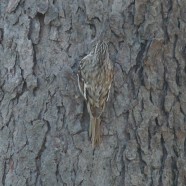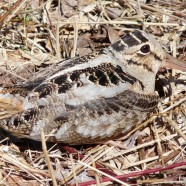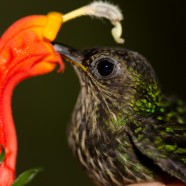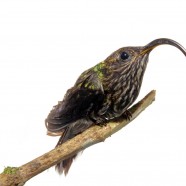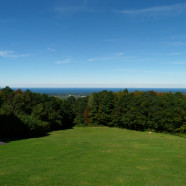Brown Creeper (Certhia americana) by Scott Kruitbosch
The Brown Creeper was one of “those” birds for me as a kid as they were so much fun to track as they spiraled up trees through the yard. They never cared about how close I was…I think they really feel they’re invisible. Close enough!
Read MoreThe unique American Woodcock
American Woodcocks (Scolopax minor) are so very unique. They are shorebirds that live in the forest, foraging in the leaf litter, or old fields. They take flight in astoundingly graceful courtship displays each year around this date on the calendar when the evenings begin to warm up. As you can see in both this photo and the subsequent videos they have tremendously evolved features such as that enormous eye that seems like it can spot you at 360 degrees at all times and a body pattern that makes them almost invisible to our eyes, even up close. You may have already seen this video we posted...
Read MoreWhite-tipped Sicklebill (Eutoxeres aquila) by Twan Leenders
Here’s that White-tipped Sicklebill (Eutoxeres aquila) showing off why, as a hummingbird, it evolved in that way as it feeds on the nectar of Centropogon granulosa. There is no real common name to the plant but it is sometimes referred to as ‘parrot beak flower’. We often see White-tipped Sicklebills with a yellow patch on the top of their head. You can see how they would get that – every time they visit one of these Centropogon flowers they get “stamped” on the head with pollen. White-tipped Sicklebills must be important pollinators for these plants!
Read MoreWhite-tipped Sicklebill (Eutoxeres aquila) by Sean Graesser
This White-tipped Sicklebill (Eutoxeres aquila) by Sean for Meet Your Neighbours has quite the look, huh? We’ll show you how that adaptation works in the next media post…
Read MoreEaster Island’s history rewritten, previewing ours?
This post was inspired by this piece on NPR by Robert Krulwich detailing what happened on Easter Island – the old story and the supposed new story. Twan and I independently read this and had the similar thought (I love when that happens) of it being a good follow-up to my recently posted entry on climate change. You can read in detail about Easter Island on NPR but essentially the old tale tells of the inhabitants spending hundreds of years destroying the tiny remote island’s environment in order to feed themselves and prosper only to be left in ruin when it was all gone, slowly...
Read More



